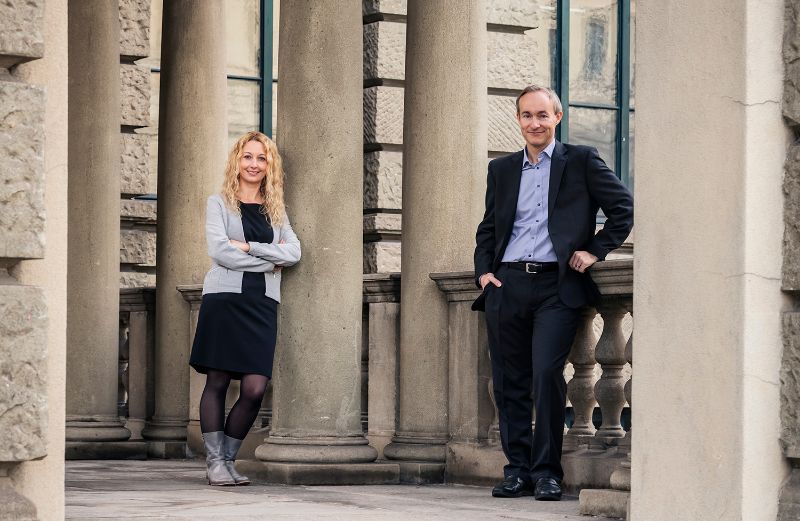Healthy newborns thanks to artifical intelligence
Anyone who enters the term “artificial intelligence” (AI) in Google’s search engine will receive almost twenty million hits. AI involves the automation of intelligent behaviour and machine learning through data and algorithms. At ETH Zurich, AI has been anchored in teaching and research for many years in a number of degree programmes: from the fundamentals of computer science, mathematics and information technology to applications in civil engineering, architecture, and natural and social sciences. It is also widely used in medicine or energy research, for example.
Now this growing expertise is being anchored in an even more interdisciplinary manner. The ETH AI Center of ETH Zurich, which links all activities of the university involving AI, started operating at the end of October 2020. It provides space to bring together experts on basic AI research and more applicationoriented researchers in this field, so that they can also exchange ideas in person. The centre will also grow into an incubator for the foundation of AI start-ups and promote the transfer of knowledge gained to the economy. “We are creating a central hub for AI at ETH Zurich,” says Andreas Krause, a professor at the Institute for Machine Learning and Chair of the ETH AI Center, “across all areas of research.” The centre will also host members of the European AI research network ELLIS (ellis.eu) and visiting researchers in open labs.
A large number of researchers from 81 professorships and 16 departments will be working together – more than one hundred will be involved in the future. Meet one of them: Julia Vogt, a mathematician with a doctorate in computer science, now a professor of medical data science, who today uses AI to bridge the gap between data-driven computer science and applied medicine. She often deals with issues relating to the early detection of possible diseases, for example of the heart or in newborns. The first step is to bring together different data types, images, written or genetic information or time-related data in a single data room. “My research as a data scientist,” says Professor Vogt, “and the questions of doctors and the interest of medical professionals in obtaining additional findings which help them to diagnose and treat diseases from the most varied types of patient data are closely linked.” The scientist initially develops a model based on the clinical knowledge of the medical professionals concerned. This is made available to the doctors via an app to collect the necessary data. At the push of a button, they then receive information about the risks associated with patients’ diseases, for example.
Detect anomalies earlier
The projects of Professor Vogt are currently at the research stage. For example, the probability of newborns developing jaundice. If recognised early, this can be easily treated with light therapy. The app, developed in close collaboration between AI researchers and medical professionals, can already predict whether a disease is likely to occur 48 hours before the first symptoms emerge using only four indicators. Another application is the early detection of heart defects in newborns. From a large number of ultrasound images, in which the small heart was recorded from various standardised angles, Professor Vogt finds signs of possible heart defects. These help doctors to detect anomalies earlier. These are examples of science based AI applications in medicine that – once certified for commercial use – have the potential to have a positive and direct effect on doctors’ daily work and patient health.
Professor Krause, Chair of the ETH AI Center, wants to train the next generation of top AI talents, “outstanding researchers who are doing groundbreaking work and are addressing pioneering interdisciplinary AI-related issues.” It is not only a question of applying existing AI methods, but also of developing them in close cooperation with users. For instance: What must neural networks look like to solve chemistry problems? Or: How do reinforcement learning algorithms need to be designed in order to be able to use large amounts of data effectively and safely in the context of Industry 4.0 or the Internet of Things?
There is a lot of potential for practical applications. This is why the centre is also open to industrial partnerships. But that’s not all: “We also train the new AI entrepreneurs there, who are to bring marketable research to start-ups and companies,” said Professor Krause.
Annual Report 2020
This article was prepared as part of the ETH Board's Annual Report 2020 on the ETH Domain.
